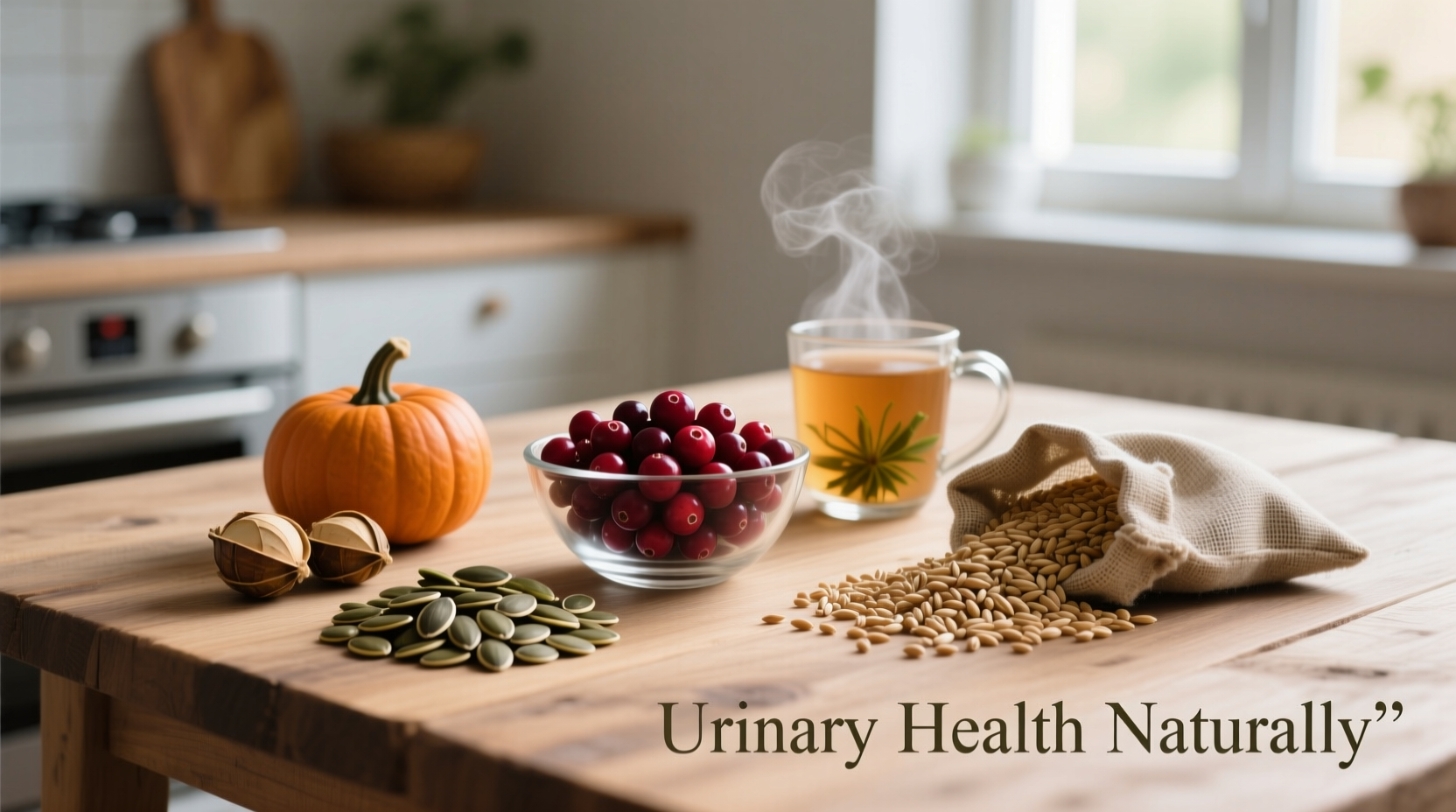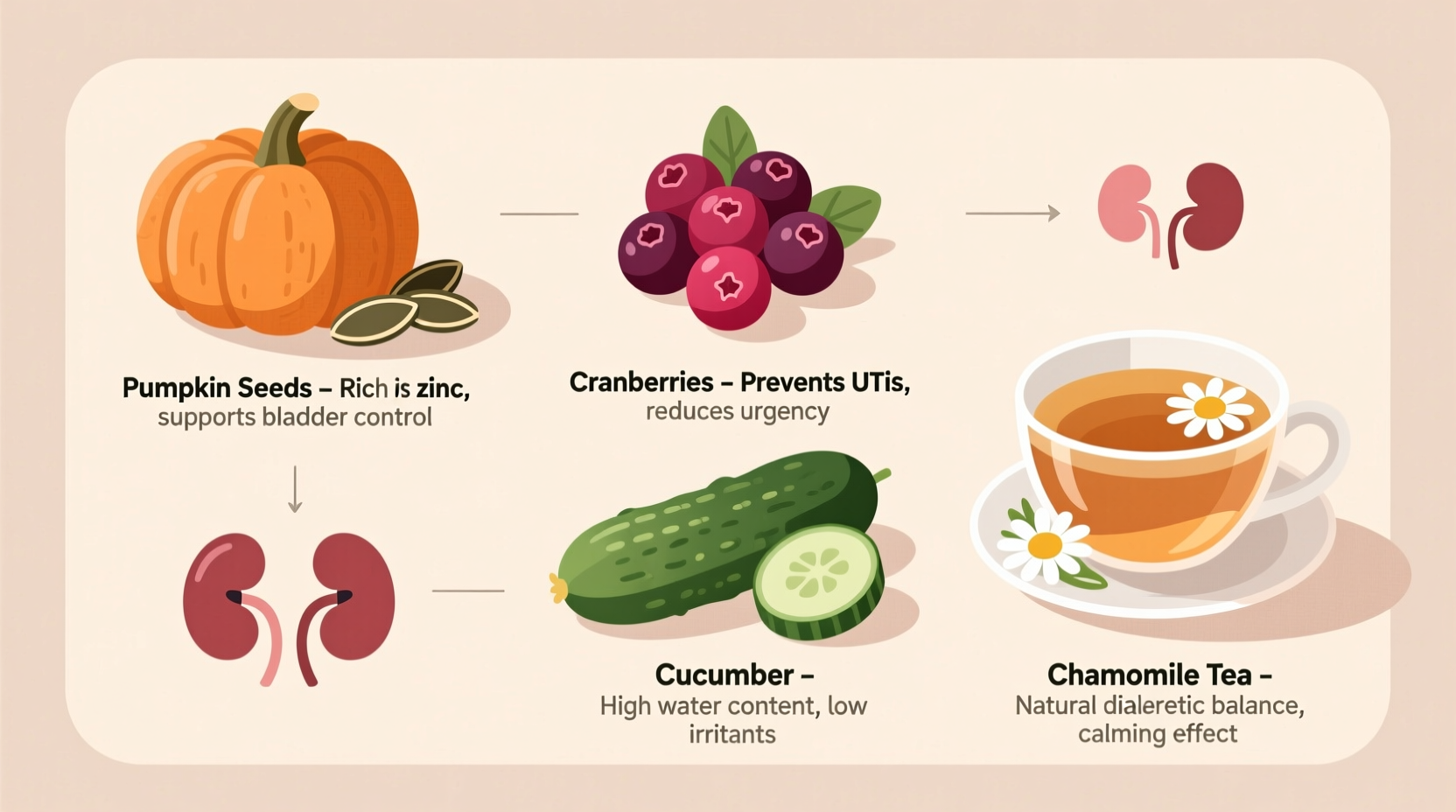If you're searching for natural dietary solutions to reduce frequent urination, certain foods can help by soothing bladder irritation and reducing inflammation. Barley water, cranberry (in moderation), pumpkin seeds, and chamomile tea are among the most evidence-backed options that may provide relief. These work by reducing bladder irritation, combating mild infections, and promoting urinary tract health—but remember, dietary changes complement rather than replace professional medical evaluation for persistent symptoms.
Understanding Frequent Urination: When Diet Can Help
Frequent urination affects millions of adults, with studies showing approximately 30% of women and 15% of men over 40 experience this symptom regularly. While occasional increases in bathroom visits might simply reflect higher fluid intake, consistently needing to urinate more than eight times in 24 hours warrants attention.
Before exploring dietary solutions, it's crucial to understand that frequent urination can stem from various causes:
- Urinary tract infections (UTIs)
- Overactive bladder syndrome
- Diabetes or prediabetes
- Prostate issues in men
- Interstitial cystitis
- Medication side effects
Important medical note: If you experience pain, blood in urine, fever, or sudden onset of symptoms, consult a healthcare provider immediately. Dietary approaches work best for mild, chronic cases after medical causes have been evaluated.
Top Evidence-Backed Foods That May Reduce Urinary Frequency
Research indicates certain foods contain compounds that can soothe bladder lining, reduce inflammation, and support urinary tract health. Here's what science says about the most promising options:
Barley Water: Nature's Bladder Soother
Barley water has been used in traditional medicine across cultures for centuries to address urinary concerns. Modern research published in the Journal of Ethnopharmacology confirms barley contains compounds with anti-inflammatory properties that may help calm an irritated bladder lining.
How to use it: Prepare by simmering 1 cup of pearl barley in 4 cups of water for 30 minutes. Strain and drink 1-2 cups daily. For best results, consume warm without added sugar.
Cranberry: Beyond UTI Prevention
While cranberry's role in preventing UTIs is well-known, research from the American Journal of Clinical Nutrition reveals it may also help reduce urinary frequency in people with interstitial cystitis when consumed in moderate amounts.
| Food | Active Components | Recommended Intake | Time to Notice Effects |
|---|---|---|---|
| Barley water | Anti-inflammatory compounds | 1-2 cups daily | 2-4 weeks |
| Cranberry (unsweetened) | Proanthocyanidins | 4-8 oz daily | 3-6 weeks |
| Pumpkin seeds | Phytosterols, zinc | 1-2 tbsp daily | 4-8 weeks |
| Chamomile tea | Apigenin, chamazulene | 2-3 cups daily | 1-2 weeks |
Important clarification: Avoid sugary cranberry cocktails, which can worsen symptoms. Opt for unsweetened cranberry juice or supplements containing at least 36mg of proanthocyanidins daily.
Pumpkin Seeds: Supporting Bladder Function
Pumpkin seeds contain phytosterols and zinc, which research in Neurourology and Urodynamics suggests may support healthy bladder function. Traditional Japanese medicine has long used pumpkin seeds for urinary concerns, and modern science is beginning to validate these applications.
How to use it: Consume 1-2 tablespoons of raw, unsalted pumpkin seeds daily. For better absorption, lightly toast them before eating.
Chamomile Tea: Calming for Bladder and Mind
Chamomile's anti-inflammatory properties extend to the urinary tract. A clinical study from the Journal of Agricultural and Food Chemistry found that apigenin, a compound in chamomile, can help reduce bladder spasms that contribute to frequent urination.
How to use it: Steep 1-2 teaspoons of dried chamomile flowers in hot water for 5-7 minutes. Drink 2-3 cups daily, particularly in the evening to reduce nighttime bathroom visits.

Foods That May Worsen Symptoms (And Smart Substitutes)
Certain foods and beverages act as bladder irritants, potentially increasing urinary frequency. Understanding these can help you make strategic dietary adjustments:
- Caffeine: A potent bladder stimulant found in coffee, tea, and chocolate. Substitute: Barley tea or roasted dandelion root coffee
- Artificial sweeteners: Particularly aspartame, which can irritate sensitive bladders. Substitute: Small amounts of raw honey or maple syrup
- Acidic foods: Citrus fruits, tomatoes, and vinegar can increase urgency. Substitute: Bananas, melons, and coconut products
- Alcohol: Especially beer and wine, which act as diuretics. Substitute: Non-alcoholic herbal infusions
It's important to note that individual reactions vary significantly. Keeping a food and symptom diary for 2-3 weeks can help identify your personal triggers.
Putting It All Together: A Sample Daily Plan
Implementing these dietary changes doesn't need to be complicated. Here's a realistic daily plan that incorporates urinary-friendly foods:
- Morning: Barley water with breakfast instead of coffee
- Mid-morning: Handful of raw pumpkin seeds as a snack
- Lunch: Salad with mild vegetables (avoiding tomatoes/citrus) and pumpkin seed dressing
- Afternoon: Unsweetened cranberry juice (4 oz) diluted with water
- Evening: Two cups of chamomile tea before bed
Be patient—most people notice gradual improvement over 4-8 weeks of consistent dietary changes. Remember that hydration remains important; don't reduce water intake excessively as this can concentrate urine and potentially worsen irritation.
When to Seek Professional Medical Advice
Dietary approaches work best as complementary strategies alongside proper medical care. Consult a healthcare provider if you experience:
- Symptoms lasting more than two weeks despite dietary changes
- Pain or burning during urination
- Blood in urine
- Nighttime urination disrupting sleep more than twice nightly
- Sudden onset of symptoms
Medical professionals can determine if underlying conditions require specific treatments. For many people, combining dietary approaches with medical guidance yields the best results for managing frequent urination.
Frequently Asked Questions
How quickly can dietary changes reduce frequent urination?
Most people notice gradual improvement within 2-4 weeks of consistent dietary changes, though individual results vary. Barley water and chamomile tea may provide some relief within 1-2 weeks, while pumpkin seeds typically require 4-8 weeks of regular consumption to show noticeable effects. Patience and consistency are key, as these natural approaches work cumulatively rather than providing immediate relief.
Can cranberry juice make frequent urination worse?
Yes, for some people. While unsweetened cranberry juice can help prevent UTIs that cause frequent urination, its acidity may irritate sensitive bladders in people with interstitial cystitis or overactive bladder. If you notice increased urgency after consuming cranberry products, discontinue use. Opt for small amounts (4 oz daily) of unsweetened juice diluted with water to minimize potential irritation.
Are there specific foods that help with nighttime urination?
Yes, chamomile tea consumed 1-2 hours before bedtime may help reduce nighttime urination due to its mild muscle-relaxing properties. Barley water earlier in the day can also support bladder health without acting as a diuretic. Avoid fluids 2-3 hours before bed, but don't restrict overall daily hydration. Pumpkin seeds consumed with dinner may provide sustained benefits overnight due to their zinc content supporting bladder function.
Can frequent urination be improved through diet alone?
For some mild cases, dietary changes may provide significant improvement. However, frequent urination often has underlying medical causes that require professional evaluation and treatment. Diet works best as part of a comprehensive approach that may include pelvic floor exercises, behavioral techniques, and medical treatments when necessary. Never delay seeking medical advice for persistent symptoms, as some causes require specific interventions beyond dietary changes.











 浙公网安备
33010002000092号
浙公网安备
33010002000092号 浙B2-20120091-4
浙B2-20120091-4